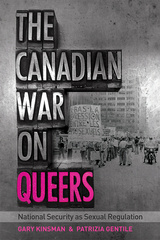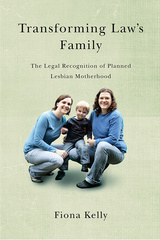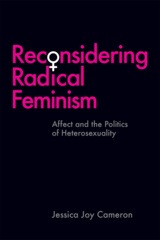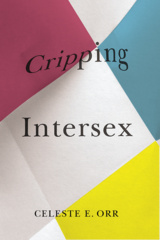
Adultery scandals involving politicians. Dating websites for married women and men. Raids of polygamous communities. Reality shows about polyamorists. It seems that non-monogamy is everywhere: in popular culture, in the news, and before the courts.
In Fraught Intimacies, Nathan Rambukkana delves into North American society’s fixation with monogamy and its attendant fascination with non-monogamy. Drawing on media coverage, popular culture, and recent court cases, he examines how polygamy, adultery, and polyamory are represented in the public sphere and the effect this is having on intimate relationships and aspects of contemporary Western society.
As this book demonstrates, although monogamy is considered and presented as the norm in Western society, many kinds of sexual and romantic relationships exist within its borders. Rambukkana’s intricate analysis reveals how some forms of non-monogamy are tacitly accepted, even glamourized, while others are vilified and reviled. By questioning what this says about intimacy, power, and privilege, this book offers an innovative framework for understanding the place of non-monogamy in Western society, particularly in relation to race, class, gender, sexuality, nationality, and citizenship status.
Timely and controversial, this book makes a stimulating and sophisticated argument for why we need to reconsider how we talk – and think – about non-monogamy.
Scholars in a range of fields, from gender studies and queer theory to cultural studies and the sociology of law and the family, will appreciate Rambukkana’s sophisticated handling of the issues raised by non-monogamy.
Undoing Monogamy and Fraught Intimacies both attempt ambitious theoretical interventions into the study of intimacy, and are indispensable resources to those already engaged in the study of non/monogamies. Through the diversity of their archives and the breadth of their thoroughly intersectional critiques, Rambukkana and Willey demonstrate that the contemporary study of non/monogamy does not, and cannot, proceed in isolation. In their discussions of non/monogamy as it appears in colonialism, border control, life sciences, comic strips and the law, these two very different books demonstrate the diverse pleasures of intellectual promiscuity.
Rambukkana’s study covers wide ground and is unusual for its relational and inter-textual analysis. His discussion not only highlights differences, but much common discursive ground across which different styles of intimacy are constructed. Rambukkana explores communalities, even if they may be uncomfortable and brush against the grain of cherished taken-for-granted wisdoms. Truly impressive is Rambukkana’s consistency in working along intersectional lines of inquiry, thereby enriching polyamory scholarship with an approach that is attentive to race, class and gender perspectives.
This is the most important book on non-monogamy to come out in many years. Rambukkana is an excellent writer, and his analysis goes beyond previous research in this area to provide an exploration which is both sophisticated and extremely engaging. The book provides a thorough overview of current cultural understandings of non-monogamy, particularly attending to the ways in which gender, sexuality, race, and class intersect in popular representations. I highly recommend this book to anybody with an interest in relationships.
In this topical and thoroughly researched book, Nathan Rambukkana shows the significance of discourses around monogamy and non-monogamy for the regulation of intimate relationships in the public sphere. By contrasting perceptions of polygamy with depictions of adultery and polyamory, Rambukkana reveals how representations of different forms of non-monogamy are profoundly shaped by multiple forms of privilege, including gender, class, and race-based privileges.
Preface: Chasing Non/Monogamy
Introduction: Non/Monogamy and Intimacy in the Public Sphere
1 The Space of (Intimate) Privilege
2 The Adultery Industry: Autonomous Space, Heteronormativity, and Neoliberal Cheating
3 Mapping Polygamy: Discourse, Reterritorialization, and Plural Marriage
4 The Fraught Promise of Polyamory: New Intimate Ethics or Heterotopian Enclave?
Conclusion: Non-Monogamies and the Space of Discourse
Appendix: Canada’s Criminal Code (C.26) Statutes on Bigamy and Polygamy
Notes
References
Index
















